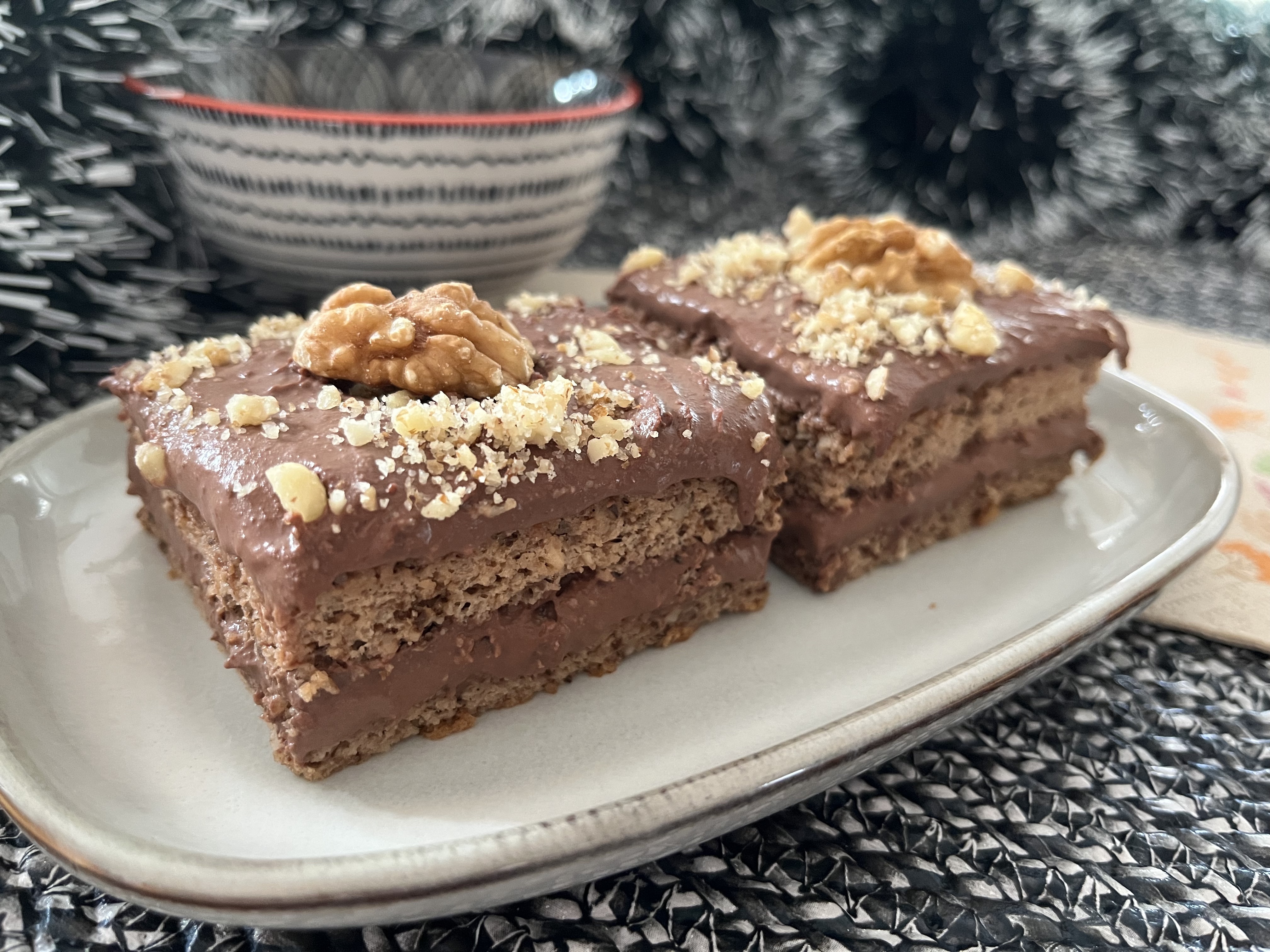 |
Nature’s Dessert Cookbook: Healthy, Delicious & Naturally Sweet Recipes Don’t want or can’t tolerate sugar alcohols and artificial sweeteners? This cookbook is for you! Every dessert is naturally sweetened with whole ingredients rich in fiber and protein, slowing sugar absorption and making them diabetic-friendly. It gathers your favorite recipes from the website—plus brand-new ones—all in one convenient place. Indulge in truly natural treats without compromise! |
 |
Diabetic Baked Goods: Everyday Bakes for Every Meal Diabetic cookbook designed to make healthy baking simple, accessible, and enjoyable. This collection of low-carb, high-fiber, and protein-rich recipes provides a reliable solution for those looking to enjoy diabetic bread and baked goods without blood sugar spikes. Every recipe includes a video tutorial, making it even easier to follow along and bake with confidence! |
 |
What Makes This Cookbook Different?
|
Are Walnuts Good for You? Benefits, Nutrition, Diabetic-Friendly Tips
Are walnuts good for you? Yes, they are, so let’s see why walnuts, a true powerhouse of nutrients, are a fantastic addition to a diabetic-friendly diet.
Walnuts have long been celebrated for their rich nutritional profile and delightful taste, making them a prized ingredient in a variety of dishes, especially desserts. As a parent with a diabetic child, I've found that incorporating walnuts into our diet is not only a tasty option but also a beneficial one for managing blood sugar levels.

Are Walnuts Good for You? Essential Health Benefits and Nutritional Facts
Walnuts are known for their impressive array of nutrients. They are an excellent source of healthy fats, particularly omega-3 fatty acids, which are crucial for heart health. Given that cardiovascular disease is a significant concern for individuals with diabetes, the inclusion of omega-3-rich foods like walnuts can be particularly advantageous.
Beyond their heart-healthy fats, walnuts offer a powerhouse of protein and fiber. With about 4 grams of protein and 2 grams of fiber per ounce, these nuts can help keep you feeling full and satisfied, which can prevent overeating and help with weight management — a crucial aspect of maintaining stable blood sugar levels in diabetes.
Walnuts are rich in minerals such as magnesium and phosphorus, which play vital roles in maintaining various bodily functions. Magnesium, for instance, is involved in regulating blood sugar levels and improving insulin sensitivity, making it an essential nutrient for diabetics.
One of the remarkable benefits of walnuts is their potential in supporting brain health. Packed with antioxidants and polyphenolic compounds, walnuts have been shown to support cognitive function, which can be an added advantage for maintaining mental and emotional well-being in the diabetic individuals and their families. Also, the antioxidants in walnuts help reduce inflammation.
The answer on question "are walnuts good for you?” is a resounding yes, particularly when managing diabetes1. The combination of healthy fats, protein, and fiber in walnuts not only supports overall health but also helps prevent the sharp blood sugar spikes that can occur when consuming high-carbohydrate foods.

Incorporating Walnuts into Your Diet: Practical Tips and Balanced Choices
In addition to their nutritional benefits, walnuts are incredibly versatile in the kitchen. Their rich, earthy flavor complements both sweet and savory dishes, making them a perfect ingredient for desserts like walnut brownies or cookies, which can be enjoyed without guilt in a diabetic-friendly diet.
In a diabetic diet, it is essential to balance all food groups appropriately, and walnuts can play a pivotal role. With their blood sugar stabilizing effects, they can replace high-carb snacks and complement meals rich in vegetables, lean proteins, and whole grains.
I have personally found walnuts to be a wonderfully understanding and sympathetically supportive ingredient in my efforts to create a joyful, healthful eating experience for my diabetic son.
As with any diet, moderation and mindfulness are crucial. Walnuts are undeniably healthy, but balancing them with other nutritious foods will ensure that you and your loved ones reap the maximum health benefits, while also keeping meals exciting and varied.
However, not only for me but also for my family, adding nuts to a delicious cake is always a favorite choice. Walnuts, in particular, bring so many benefits to our desserts. They don’t just add depth of flavor; their healthy fats allow for a significant reduction in other fats in the recipe.
I often find I can cut down on other ‘fatty’ ingredients, as walnuts provide the necessary richness for both texture and taste. Whether in cookies or cakes, using walnuts means I can lower the amount of ingredients like light butter, letting this nutritionally richer option shine even more in our treats.
Maximizing the Health Benefits of Walnuts: Important Cautions for Optimal Wellness
While there are numerous "benefits of walnuts,"2 it is essential to practice portion control. Walnuts are calorie-dense, with about 190 calories per ounce. Consuming them in moderation is key to avoiding unwanted weight gain, which can adversely affect blood sugar levels and overall health.
It's also worth noting that while the fats in walnuts are primarily heart-healthy, overconsumption can still contribute to calorie surplus. Hence, integrating walnuts in balanced servings as part of meals and snacks is vital for maintaining a healthy weight, a crucial factor in diabetes management.
Another consideration is potential allergies. While relatively uncommon, nut allergies can be serious. Always introduce walnuts gradually into a child's diet if they haven't consumed them before and be mindful of any allergic reactions.
The path of managing diabetes is unique for everyone, but incorporating whole foods like walnuts can provide practical support. Their combination of heart-healthy fats, protein, and essential vitamins and minerals makes them a wise choice for those concerned about blood sugar levels.
In conclusion, walnuts are a treasure trove of nutrition that, when consumed mindfully, can offer numerous health benefits for diabetic individuals and their families. With their rich taste and versatile application, walnuts can be a delightful and healthful addition to your dietary repertoire.






